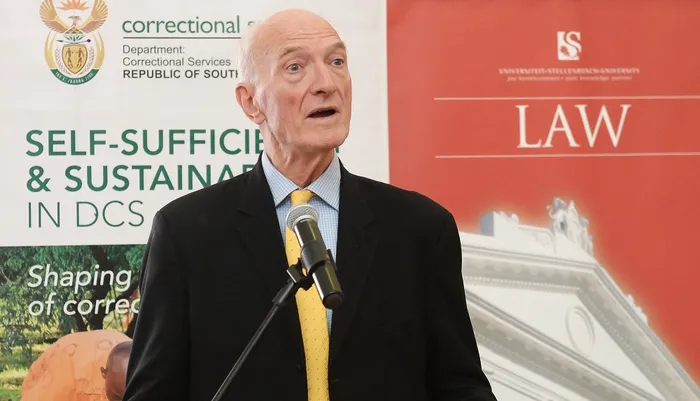Experts gather at national summit to reform parole system

Justice Edwin Cameron is among the experts who will give their input on how to streamline the parole process.
Image: Supplied
The parole system in the country is under the spotlight over the next two days, with experts, the legal fraternity and policymakers, identifying shortcomings in the system and stressing that the rights of both victims and offenders - who are released into the communities - should receive more attention.
Offenders, according to the experts who delivered their representations on Monday, should receive more support once they are reintegrated into communities. As part of the proposals, it was suggested that there should be a designated call centre to assist them.
It was also suggested by some experts that the government should provide offenders with financial assistance so that they could take the skills and trades they have learned while incarcerated, further once they are out on parole.
Correctional Services Minister Pieter Groenewald officially opened the National Review summit held at the Kgosi Mampuru Correctional facility in Pretoria.
The aim of the summit is to fix the parole system where it is lacking, especially in light of the many who reoffend after their release on parole.
In his keynote address, the minister stressed that corrections are a social responsibility. He highlighted that the outcome of this summit will help shape national policies and legislative processes for the benefit of the people of the country, victims of crime and offenders.
Groenewald expressed his commitment to building a balanced, fair and effective parole system.
“We will explore how we can fix the parole system. It is of uttermost importance that we look at it so we can ensure that we can enhance justice and create safer communities for South Africa. In the end the system will ensure and strengthen justice and create safer communities.”
Groenewald added that this is a process which has come a long way. It started in 2015 and when he became minister, he said this process of streamlining the system must now be finalised.
According to Groenewald, the strength of the present system is that the parole board has members of the communities serving on it. The board has six members, of which four are from communities.
He also highlighted that at present, experts such as social workers are involved in the parole process, who compile a profile regarding the offender who is eligible for parole. But Groenewald said there are many other aspects which must still be addressed, such as the risk of reoffending once out on parole.
Asked about his stance on medical parole, the minister said: “You have a new minister now. I am looking very carefully at whether I approve any medical parole. It will not be a simple matter of who you know, or the political connections you have. If you go on medical parole you can ensure, as long as I am the minister, it will be justified”.
Cape Times
Related Topics: